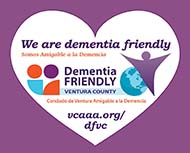
Well it is that time of year again when we get to tally up all our dues. Yep, we are talking about tax time. For all of us who are caregivers and incur home care costs for a loved one, you may be able to deduct the expenses on your taxes. PLEASE NOTE: to qualify for many of these deductions you must be a spouse, dependent, or qualifying relative, as well as a United States citizen or resident of the U.S., Canada, or Mexico to get the deductions. This does not refer to caregivers working for an agency. Also, be sure to check Publication 502 at the IRS web site for all up-to-date tax codes. Alright, with the disclaimer out of the way it is best to get into the meet and potatoes of deducting your caregiver and home healthcare tax deductions.
Deduction if Your Loved One is a Dependent
To be able to receive a tax deduction for a loved one as a dependent they must meet a few criteria. First you must pay for 50% or more of their medical and support costs. They must also have a Gross Income less than $3,900. Also to be listed as a dependent they must be in one of the following categories in relation to you:
- Son, daughter, stepchild, or foster child, or a descendant of any of them (for example, your grandchild),
- Brother, sister, half brother, half sister, or a son or daughter of any of them,
- Father, mother, or an ancestor or sibling of either of them (for example, your grandmother, grandfather, aunt, or uncle),
- Stepbrother, stepsister, stepfather, stepmother, son-in-law, daughter-in-law, father-in-law, mother-in-law, brother-in-law, or sister-in-law, or
- Any other person (other than your spouse) who lived with you all year as a member of your household if your relationship did not violate local law,
Writing off Medical Expenses if They are Not a Dependent
If the person does not meet the criteria above do not worry you still may be able to write off some of their medical expenses. As long as they would have met the criteria above but did not because of the following reasons:
- He or she received gross income of $3,900 or more in 2013,
- He or she filed a joint return for 2013, or
- You, or your spouse if filing jointly, could be claimed as a dependent on someone else’s 2013 return.
It is important to note that as of 2013 you can also only expense your medical costs if they exceed 10 percent of your gross income. This can include your own medical costs as well as the cost you pay for your qualified relative.
What Caregiver and Home Care Expenses can I Deduct?
By now you should be able to determine if the home healthcare and expenses of the person you caring for qualifies for deductions. You should be wondering what can I deduct? Below you will find a list of approved items from the IRS that can be deducted.
Deductible medical expenses may include but are not limited to:
- Doctors fees, such as dentists, surgeons, chiropractors, psychiatrists, psychologists, and nontraditional medical practitioners.
- In-patient hospital care or nursing home services cost.
- Weight-loss programs that are associated with a specific disease. Health clubs do not count.
- Costs of acupuncture treatments, inpatient alcohol and smoking-cessation program, including medication that require a prescription.
- Insulin and drugs that require a prescription
- Medical conference dues and transportation relating to a specific disease you or your qualified relative has. This excludes meals and lodging.
- False teeth, prescription glasses or contacts, hearing aids, crutches, wheelchairs, and guide dogs for deaf or blind.
- Transportation costs for essential medical care.
Although these are the approved items that can be deducted there are some that you can’t deduct that you may have thought you could. Over the counter medication, toothpaste, most cosmetic surgery, toiletries, funeral or burial expenses are among a few that can not be deducted.
Be Sure To Keep Records
It is smart to keep any important tax information especially when it comes to deductions. The care giver and home health care expense records you should be keeping are the name and address of the medical provider as well as the amount and date you paid. You should also be sure to have an itemized receipt or statement that list each medical treatment you or your loved one received as well as the type and reason for the medical expense.
Now that you know if and what you can deduct as a caregiver and for home care expenses it is only a matter of actually doing your taxes. Be sure to use a licensed professional if you have any question about deductions and to be sure you are properly qualified. Also, if you find it hard to keep track or need help you can also hire a company for home care services.







